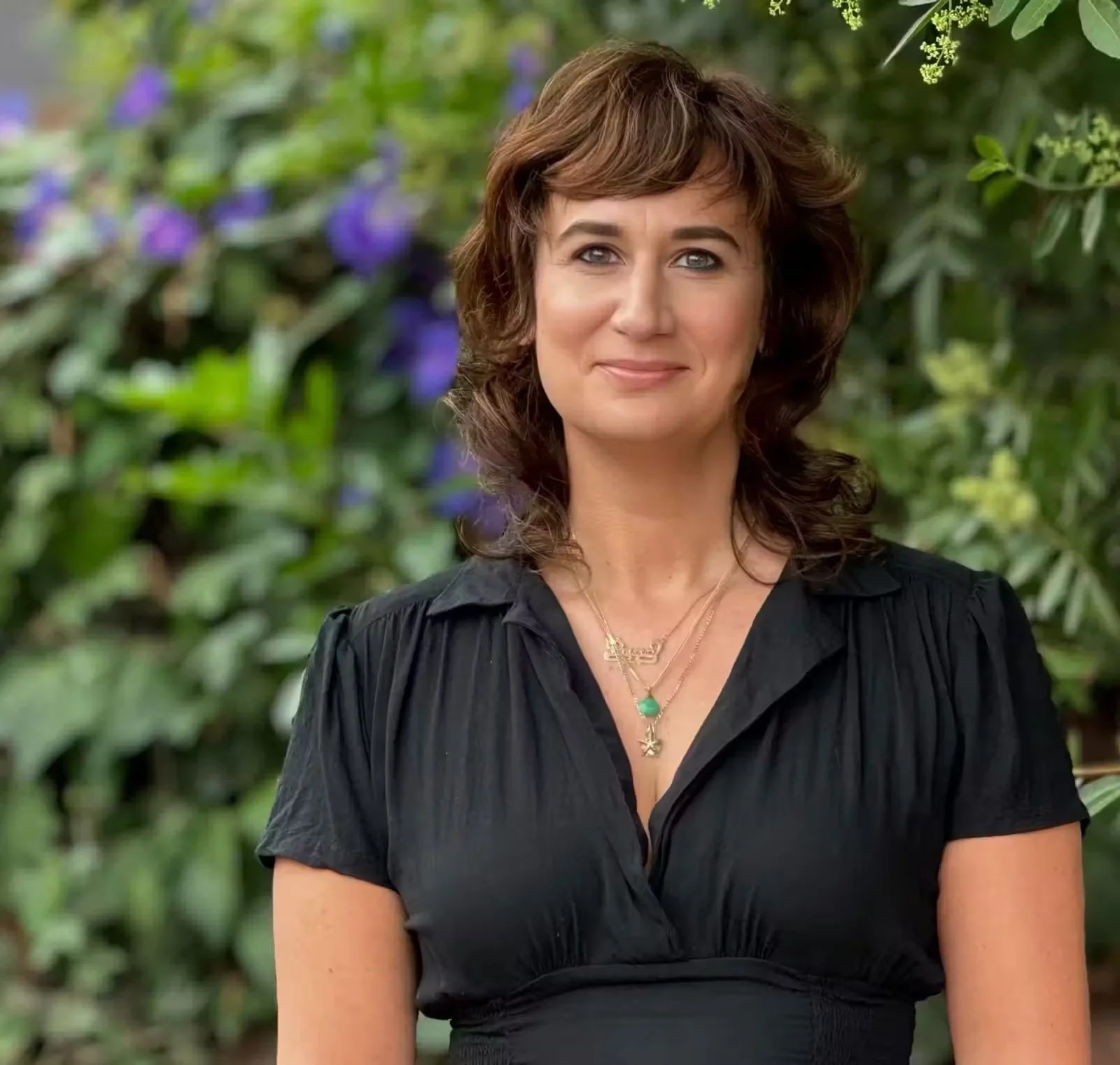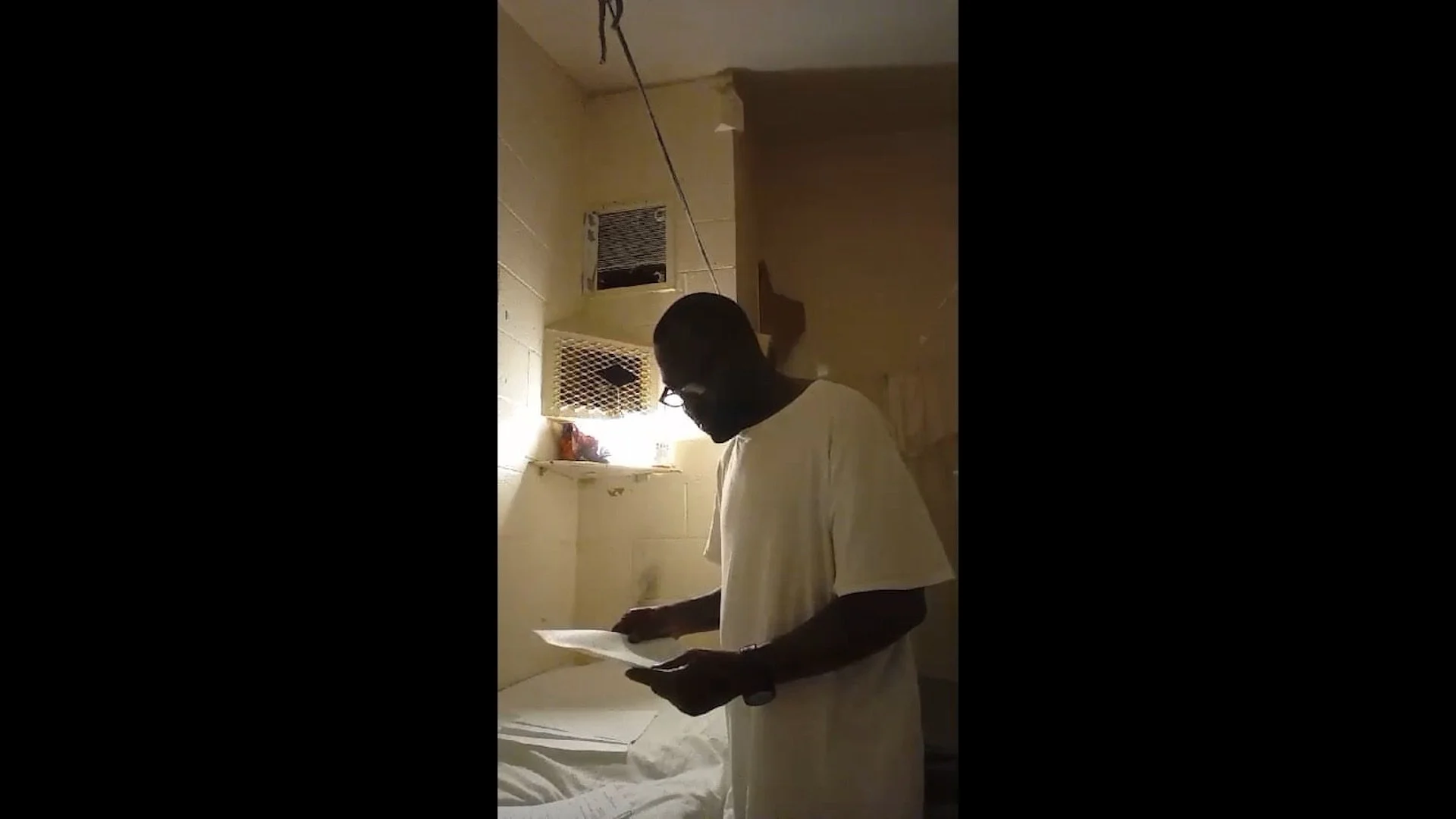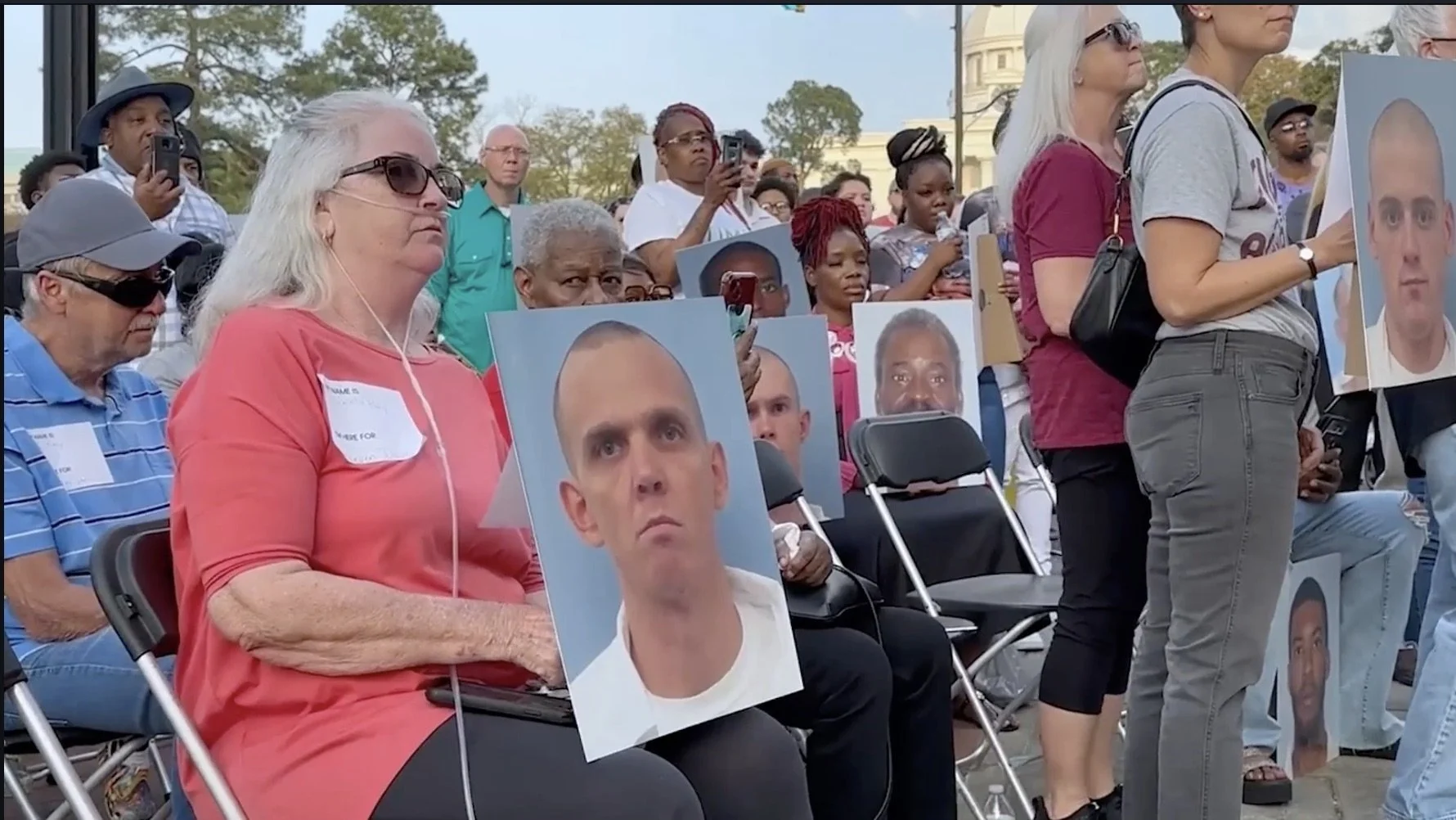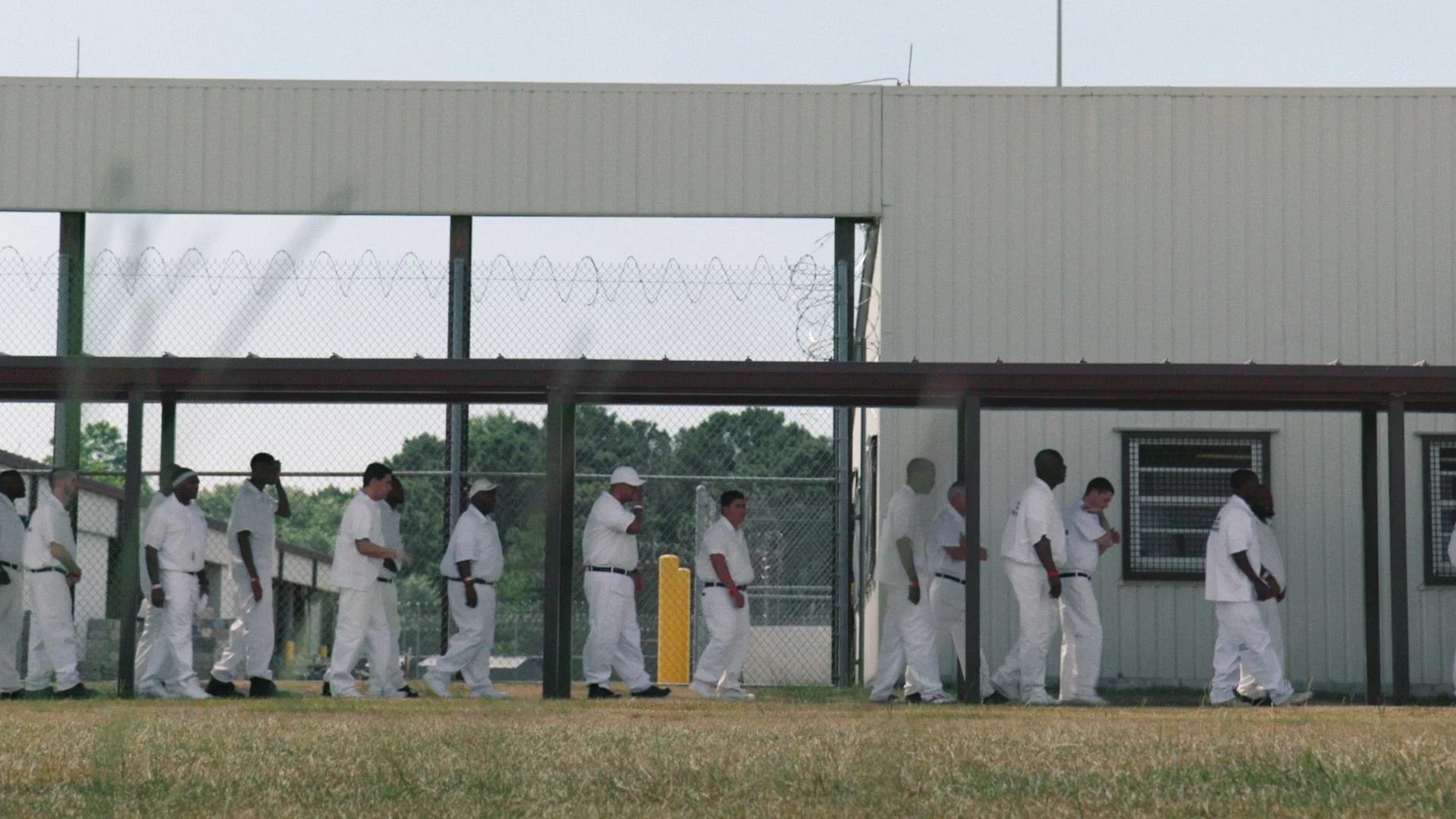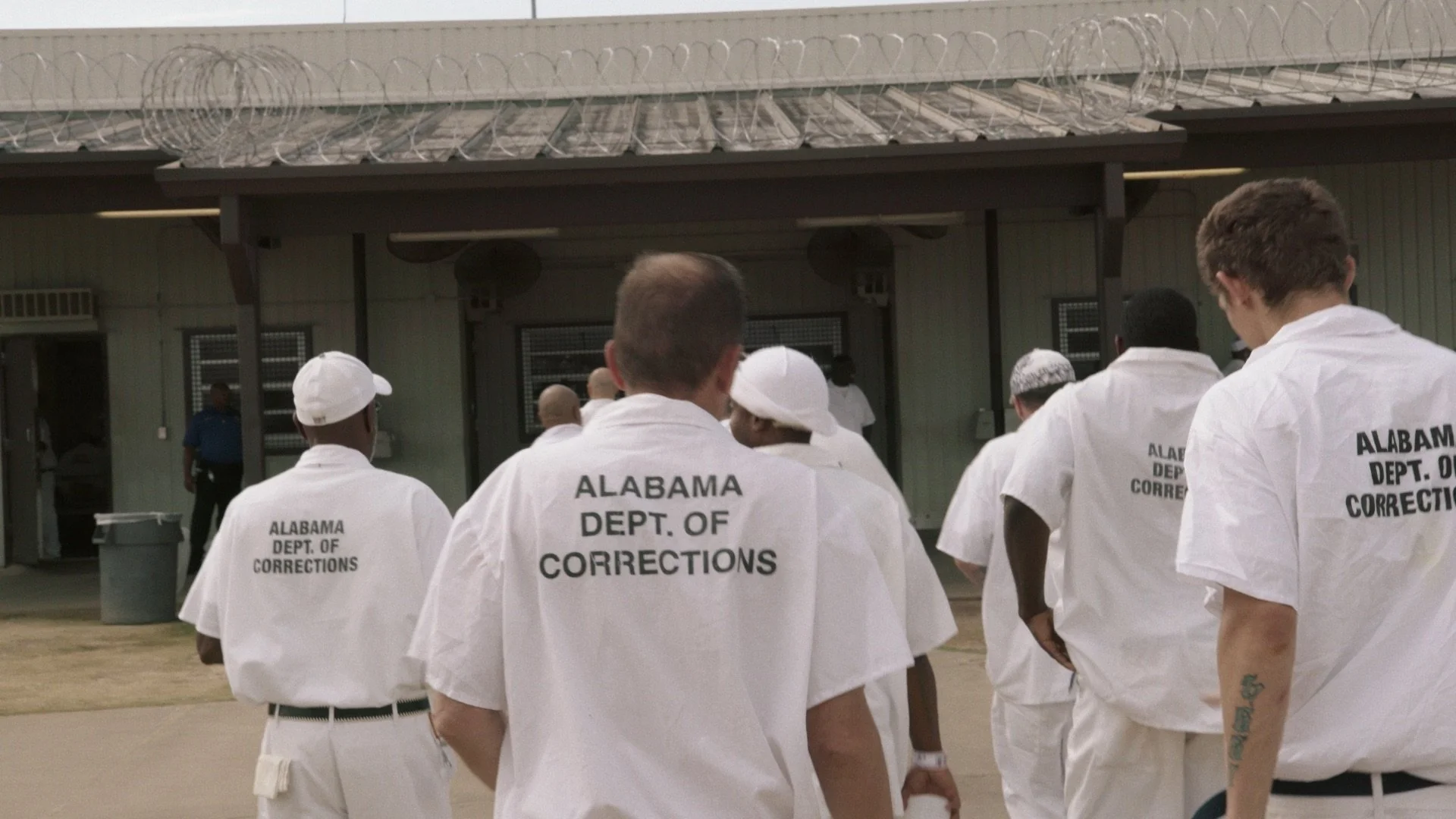Editor Page Marsella Illuminates the Voices at Heart of “The Alabama Solution”
There’s an old Hollywood adage that says films are shaped in the editing suite. The editor spends months poring over hundreds, maybe thousands, of hours of footage to construct the most compelling narrative. In the case of documentaries, this work is even more important. An editor has a large hand in ensuring that the goal of the documentary is accessible and understandable, and retains the voice of its subjects. Andrew Jarecki and Charlotte Kaufman’s The Alabama Solution documentary tackles such immense, wide-spread, longstanding corruption that it would be very easy for the film to become a heavy, numbers-based piece of journalism. Editor Page Marsella’s outsider approach, however, guaranteed that The Alabama Solution became the essential, damning piece of work that it is.
“Andrew and Charlotte don’t set out with a goal. They have a subject they’re really interested in. They’re just curious people. I joined kind of the same way,” recalls Marsella. “They were like, dive in and start watching stuff. And there were so many proper sit-down interviews with politicians, criminal justice advocates, and lawyers. To me, it was all very heady.”
Credit: Impact 24
“I think when you have a subject like mass incarceration, it can easily get to a place where you’re kind of tuning out because it’s such a heady thing. It’s hard to know how much background information an audience member needs. We would be like, okay, do we need to explain racism? How far back do we have to go to tell a story that’s this big?”
“I was mostly drawn to the incarcerated men’s footage. I think I was helpful in giving Andrew and Charlotte the confidence that the cell phone footage was captivating. These men are brilliant. Not that they didn’t know that, but it’s always a concern when you’re primarily working with cell phone footage. It’s glitchy. The audio drops out. Are people going to be able to watch this?”
“We didn’t want to clean it up that much because the medium is the message. That’s what it’s really like when you’re speaking to incarcerated people. We don’t need these sit-down interviews. These are the people who are closest to the problem, and we need to just get out of their way. They can help teach us what we need to know.”
“Every director is different. Some directors enter with an outline. They know what they want and you’re there to just sort of help guide that,” explains Marsella. “In this project, we began to slowly trust each other because you do kind of have to get to know each other. As you’re editing and showing them things, you’re building trust with each other. Then they can feel more comfortable relying on my instincts and my opinion as someone coming in fresh and not knowing much about the material.”
Courtesy of HBO
“At that point, Andrew and Charlotte were kind of experts themselves. I was entering not knowing that much, so it’s also helpful for them if I’m like, this is important, but I’m not getting it. Let’s talk to Kinetik Justice and Melvin [Ray] and let’s get some more info about this situation.”
For five years, Jarecki and Kaufman shot The Alabama Solution, but they were not the main camera operators for the film. The Alabama Solution features extensive cell phone footage shot by inmates incarcerated at various prisons around Alabama, including the Easterling Correctional Facility in Southeast Alabama. Robert Earl Council (aka Kinetik Justice), Melvin Ray, and Raoul Poole risked their lives to capture their daily realities and share them with the filmmakers. When Marsella joined the project, she took her time to figure out the rough sketch of what the final product of The Alabama Solution would look like.
“It’s so overwhelming, but it’s also the process, and I love that process,” says Marsella. “We were lucky enough to have the time. That’s what Andrew’s really great at. He wants us to be able to find the best story and knows that takes time. A lot of projects nowadays don’t have that and so I was able to have a couple weeks where I was sifting through stuff, watching stuff. Then we would have very long Zoom meetings where we were just all talking about what resonated with me, things they were still discovering in the field, etc.”
“There are definitely days where you’re like, I’m never going to find it. How am I going to get there? Then also reminding myself, I’ve done this enough to know there’s going to be a point where it starts to come together. I love even doing puzzles, like thousand-piece puzzles. You open a box and you’re just like, this is never going to work. Then you start slowly doing the edges and little sections, and it does start to come together. You start to see a shape that forms. I just have to constantly remind myself that this is part of the process. There could be days where I know I’m procrastinating because I decide to do a music search for a few hours.”
Courtesy of HBO
“But again, that’s not really procrastination. That’s all part of the process. Trusting that I know myself, I know it’s going to come. I think having a love of puzzles, for example, shows you that you will get there.”
While Marsella may start puzzles with the outer edges, that’s not how she approached The Alabama Solution. She often shies away from constructing the beginning and ending of a project in the early stages, especially in the documentary format. The filmmakers may still be shooting and don’t yet know when they’ll finish their storytelling. Because The Alabama Solution is presented chronologically, Marsella did have a place to start.
“We kind of always knew what the beginning was because it was when Charlotte and Andrew first went to Easterling prison. After that, I wanted to piece together things that I knew were important. We always knew Halifax County was essential. It’s like, okay, let me build out Halifax County. We know that’s something that’s going to live. We know labor is an issue, we know that’s something that’s going to live. I find it’s more helpful to build the things we know are going to be in the final cut.”
“With a project like this, you’re scared every day for your men on the inside. Anything could happen. As we’re cutting it up, we want to give ourselves time to find the story, but also, we’re cutting against the clock. We want this to get out so some ripple of change can hopefully happen, before something terrible happens to anyone on the inside.”
Marsella is a self-described “non-techie” editor. She cuts on Premiere and AVID, but doesn’t have a profound preference for one over the other. What speaks to Marsella more is the storytelling component that editing allows her to explore.
“In my high school in Queens, I had an amazing teacher who showed us editing with a VHS and recording between decks. He had old footage from a show called Gunsmoke that I wasn’t even aware of at the time, but one of the projects was to take this material and do something else with it. That kind of blew my mind.You don’t really think about it until you’re faced with it. Someone is creating the story and you can change it so much just by changing the order of the scenes.”
Courtesy of HBO
“Editing, to me, was more figuring out the story I wanted to tell. To me, that’s always most important. Technology, effects, and stuff are obviously tools, but if the story isn’t there and I can’t connect with characters, I’m not going to be into what I’m watching. No matter how amazing the effects are.”
That mentality carried into conversations Marsella had with Jarecki and Kaufman about being selective with their title cards of facts. They wanted this powerful information to be available, but not presented in a manner that would overwhelm the viewer.
“The amount of time we spent on it would seem crazy, just the wording of it,” laughs Marsella. “Sometimes we would start to do fractions and I’d be like, guys, I’m the audience member, I don’t even know what that means. We wanted to make sure that the ones we did include packed the most punch and the most effect for how dire the situation is.”
“How can a journalist go into a war zone but can’t go into a prison in the United States of America?” It’s one of the quotes from Melvin in the film that’s shocking in how much is said in so few words. Journalists report live from war zones every night on the evening news, but cannot get access to the prison in their home state. Part of the power of The Alabama Solution is that it forces people to reconsider what they thought they knew and what they thought they could do to remedy the situation.
“A lot of journalists, especially in Alabama, say this is an indictment of themselves, something they accepted as an answer for so long and didn’t push back,” explains Marsella. “I think we’re seeing that in so many areas right now in our country. We really need journalism to be the checks and balances because it doesn’t feel like there’s any parent in the room at all.”
Once editing on The Alabama Solution was finished, the film team began preparations to share their work with the world. All documentaries should take their subjects’ safety into consideration when the film is seen by worldwide audiences, and the team behind The Alabama Solution took this concern very seriously. Their work is more than making a film, it’s being the caretakers of the stories of the men incarcerated in these prisons and ensuring, first and foremost, that their safety is upheld.
“When we premiered at Sundance, our film was not announced when the schedule was announced, because Charlotte and Andrew wanted to make sure everyone involved had a chance to see it. They were blown away. They were also like, when is this getting out, we need this, we want a bigger platform, we want the world to see this. They were braver than us. Their bravery kept us going, because this is what they’ve worked so much of their lives for.”
Courtesy of HBO
“One thing they often told Charlotte was that they were more afraid of what happened when the cameras turned off. Andrew always says democracy dies in darkness, but so do other people. We see it now with what’s going on with ICE. People can just disappear and it’s really scary. If we don’t have journalists doing the work to get these stories out, then they do die.”
While Marsella, Jarecki, Kaufman, and the rest of the team didn’t set out to make The Alabama Solution to win an Oscar, there is growing buzz around the film. For Marsella, it’s not about potentially having a piece of gold hardware on a shelf one day, but about the real change The Alabama Solution can create, not just in Alabama, but in the larger American carceral system.
“A large platform for their stories is all the men want. For us, we are now activated, we’ve been revolutionized. It’s a very important cause to all of us now. I think that the more the issue gets talked about, the better chance we have of changing things.”
“In Alabama, they often have Prison Oversight Committee meetings. Ten people usually show up. At a recent one, they had something like 200 people. They had to change rooms because so many people showed up. There was also a huge protest on the state Capitol steps, with pictures of Steve Marshall and Kay Ivey.”
“Very often for these families, there’s so much shame surrounding an incarcerated loved one. I think the film has given them an entry point to have these conversations. We should be talking about this more and we need to make it a better-known issue. It’s a humanitarian crisis, and it’s happening in every single state. It’s not just Alabama. I think it’s easy for people to be like, oh, that’s the South, they’re backward. It’s everywhere. It’s New York. It’s California. It’s happening everywhere.”
“We’ve had awesome feedback from activists who have been doing the work for decades. That’s what’s most important to us. We wanted to make sure we got it right, and we had a lot of screenings throughout the process with ex-incarcerated people to make sure that we were. After it ended, everyone was like, this is the first time we feel seen. We feel like there’s finally a real, true portrayal of what actually goes on.”
Support Your Local Film Critic!
~
Support Your Local Film Critic! ~
Beyond the Cinerama Dome is run by one perpetually tired film critic
and her anxious emotional support chihuahua named Frankie.
Your kind donation means Frankie doesn’t need to get a job…yet.
Follow me on BlueSky, Instagram, Letterboxd, YouTube, & Facebook. Check out Movies with My Dad, a new podcast recorded on the car ride home from the movies.

